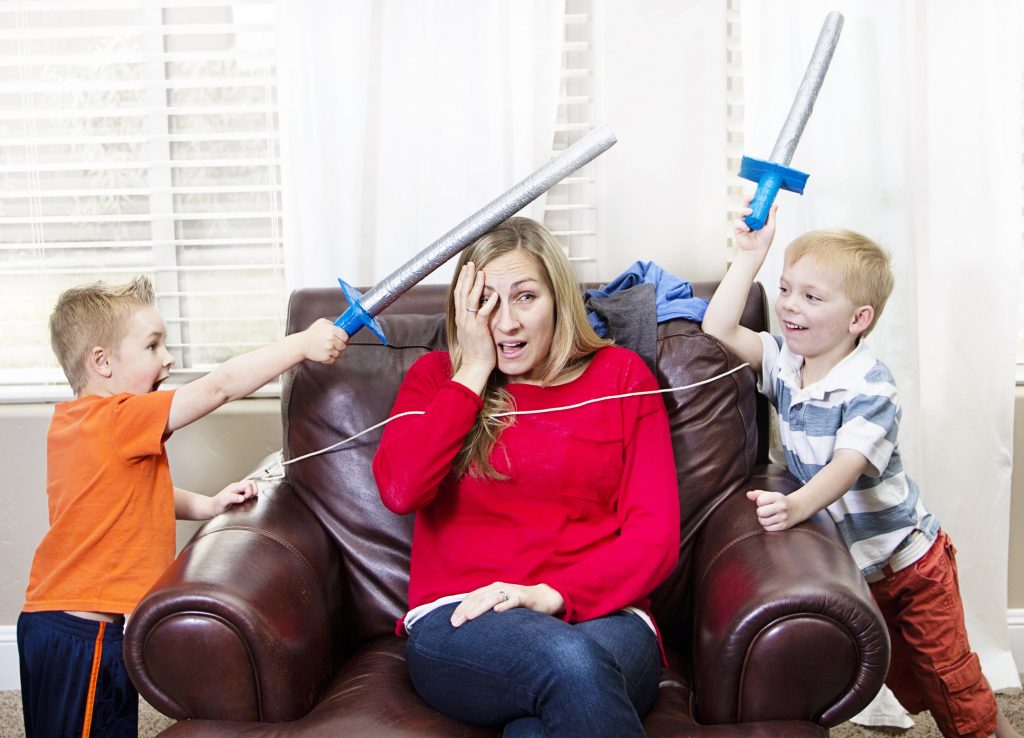Managing Your Reaction To Your Kids as a Parent

Does parenting a child with ADHD stress you out? It does for me, at times. While I know it’s hard to manage your anger when things feel like they’re spinning out of control, the following tips will help you as a parent manage your anger and move toward a better outcome for both you and your child.
Does this Scene Feel Familiar?
Your daughter is late for karate, but she has to run back into the house because she didn’t put her karate belt in her gym bag. While she was saying “bye” to the dog one more time before running out of the house, the dog squeezes through the door and is loose. Now you have to put the dog back in the house; you’re late, you’re tired and stressed, and your emotions are running amuck.
Stop the Cycle of Emotional Reactivity
As the parent of a child with ADHD, you’ve probably had times when you were pushed over the edge. You know the frustration that builds in your body as you pulse with anger, your emotions percolate, and then … you erupt.
This kind of an emotional reaction is hard to avoid … and it has a ripple effect. Your response dictates what happens next between you and your child.
So how can you change the cycle?
-
Notice your own body signals. Try to understand what’s happening in your own body – how your anger shows up. Everyone has a point when they can get too angry and lose a bit of control, and the trick is to start noticing the signs that happen in your body before you cross the that line. This means taking your own emotional temperature. Once you notice the initial irritation, focus on identifying strategies to help keep you in control, strategies you can pull up in the moment, like breathing deeply, listening to music, or pausing to consider whether the incident is big or little deal in the grand scheme of things. Use self-talk to move toward a calmer state. If you take a parent “time out” before you reach your top level of frustration, you will be able to deliver your message in a way that will improve your effectiveness as a parent.
-
Don’t give punishments in anger. Dial in the anger and take a pause, and avoid throwing out nuclear punishments. Model positive emotional regulation, instead. Take some time when you are upset, and wait to respond until you are calm. Typically punishments rendered when you are in the “thick of it” can be too much, and often you’ll end up having to backtrack. With unjust consequences, you actually dilute the effectiveness of the punishment. Children have a fierce sense of what’s fair, and when their parents have been unjust, the problem snowballs … and children are less likely to take responsibility for their own mistakes.
-
Pick your battles. This does not mean that you do not have to ignore all behaviors and let your children rule the roost. But you should think in terms of prioritizing behaviors. Understand which behaviors are being worked on, and which ones can wait to be addressed. Also consider which behaviors are important to the happiness and well being of the family. For example, if it’s 7:30 p.m. and you know that asking your child to pick up a towel from the floor could result in a huge battle, consider letting it go this time. Let your child go to bed in a good mood, instead of spending 20 minutes arguing about a towel. If picking up the towel is a behavior you’re working on, then you can address it the next day when it is less likely to cause an upset. But ask yourself, “what’s most important right now?” and try to limit your corrections to what is essential.
Parenting a child with ADHD can be extremely rewarding; it can also be quite frustrating, and the rewards can be difficult to remember when the dog runs out the door and you are late to karate!
There are times when you think that you are the only family struggling to get it right. Many parents sacrifice their hobbies and free time to manage homework, plan meals and taxi their children to all of their many activities. Be sure to remember the importance of “me time” — time off to take care of yourself. It can help you manage your reactions and cope with the frustrating moments better. Go for a 10-minute walk, let your family know you are taking a “time out” and spend 20 minutes reading your favorite book. Even if it’s just little moments to breathe, they will improve your mood and how you manage the next wave of activity.




